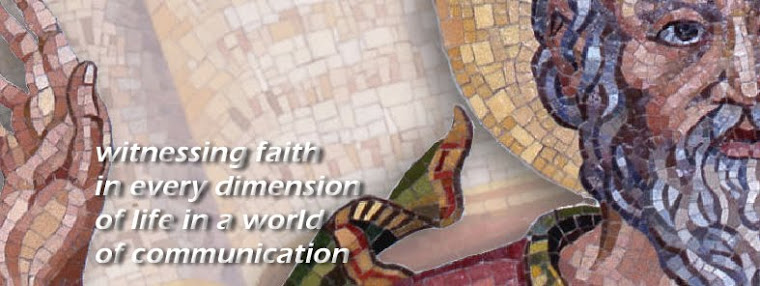The Gospel of John 1:45-49 is a compass for our refection: “Philip found Nathanael and said to him, ‘We have found him about whom Moses in the law and also the prophets wrote, Jesus son of Joseph from Nazareth,’ ‘Come and see.’ When Jesus saw Nathanael coming toward him, he said of him, ‘Here is truly an Israelite in whom there is no deceit!’ Nathanael; asked him, ‘Where did you get to know me?’ Jesus answered, ‘I saw you under the fig tree before Philip called you.’ Nathanael replied, ‘Rabbi, you are the Son of God! You are the King of Israel!”
Nathanael changes from an almost sarcastic distrust to the admiration of unexpected faith. This change takes place when Jesus surprises him by revealing that he know him in depth: "…I saw you under the fig tree."
 The meeting between Jesus and Nathanael is a reflection on the meeting between evangelization and communication. The fruitful meeting between evangelization and the press and later between evangelization and the mass media and between evangelization and the culture of communication, forms part of the “DNA” of the Pauline charism. The two elements are inseparably united and thus we cannot concentrate on just one of them and live just one of them. Without communication, evangelization is lived in a space and time determined solely by our interpersonal and communitarian relationships. Without evangelization, communication transforms the Pauline charism into a publishing business.
The meeting between Jesus and Nathanael is a reflection on the meeting between evangelization and communication. The fruitful meeting between evangelization and the press and later between evangelization and the mass media and between evangelization and the culture of communication, forms part of the “DNA” of the Pauline charism. The two elements are inseparably united and thus we cannot concentrate on just one of them and live just one of them. Without communication, evangelization is lived in a space and time determined solely by our interpersonal and communitarian relationships. Without evangelization, communication transforms the Pauline charism into a publishing business.In Christ, the mystery of the human word and of the Word of God meet and become a mutual law: God hands himself over to human words, allowing himself to be wounded and compromised in and through them. And human beings find in the eternal, inexhaustible and fecund Word of God the “grammar” needed to express themselves. Basically, this is what salvation is: an act of communication in which God and human beings draw near to one another to the point that they are bound by a mutual presence in which the life of each becomes that of the other. This is not a forced bond but one that liberates and that communicates dignity, freedom, hope and vigor.
Silvio Sassi, SSP

No comments:
Post a Comment